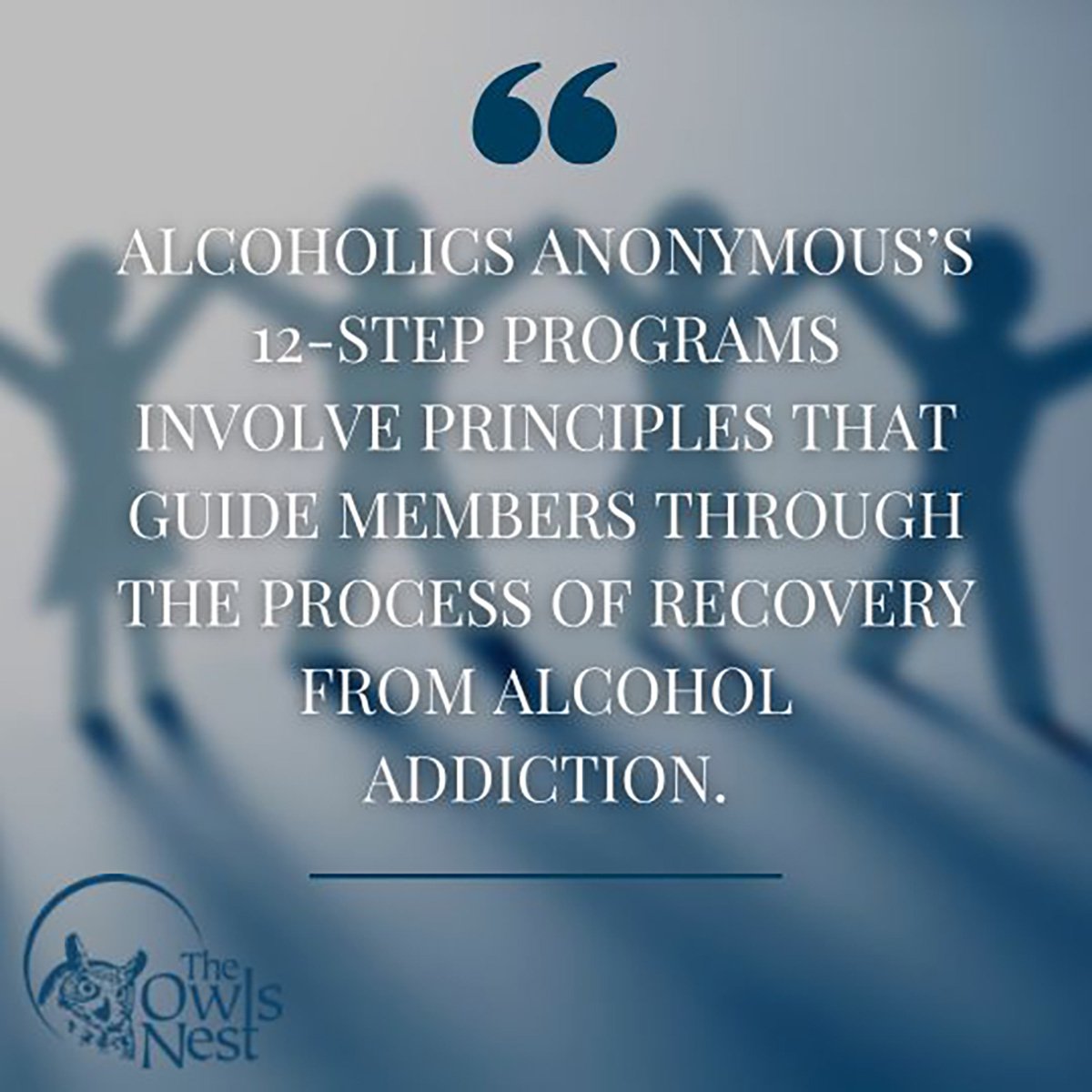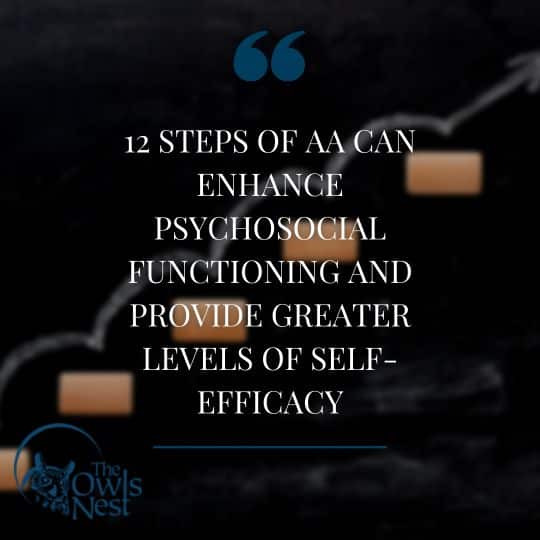It’s not easy to bounce back from addiction. It takes incredible strength and self-discipline to develop healthy habits and sustain sobriety. Additionally, having supportive people by your side plays a significant role in your healing.
People struggling with alcohol use disorder require treatment to control their excessive drinking. Common interventions include inpatient and outpatient programs, psychological counseling, self-help groups, and medication. Treatment plans are customized depending on their needs, conditions, and situations.
Addiction professionals may also encourage patients to join Alcoholics Anonymous’s 12-step programs to get emotional support as they work on alcohol abstinence. It involves principles that guide members through the process of recovery. It also allows recovering individuals to meet others going through the same challenges, boosting their motivation and reducing feelings of isolation.
“Alcoholics Anonymous’s 12-step programs involve principles that guide members through the recovery process from alcohol addiction.”

What Is AA?
Alcoholics Anonymous is a self-help organization for individuals who have drinking problems but have a desire to overcome them. There are more than 123,000 AA groups worldwide, and their core program focuses on abstinence from alcohol, personal and spiritual development, and reliance on a higher power.
As one community, they hope to solve their common problem and help each other recover from alcohol addiction.
You do not have to pay anything to be a member – participants can contribute as much or as little as they want to cover expenses such as rent, food, etc.
AA is not affiliated with any organization or religious institution, and they do not wish to engage in any controversy. They allow people of all races, gender, belief, sexual orientation, income, or professions to join meetings. You don’t need to sign up to be a member; you can come and go as you please.
During meetings, participants can talk about their experiences with other attendees with the same drinking problems. They may also get a sponsor from the group who can help them navigate their recovery, answer questions, work on the 12 steps, and keep them accountable for their actions.

What Are The 12 Steps Of AA?
Step 1: We admitted we were powerless over alcohol – that our lives had become unmanageable.
Recovery can only begin with an honest admission of the control alcohol has over your life. It is the first step toward defeating your addiction.
Step 2: We came to believe that a Power greater than ourselves could restore us to sanity.
This step involves accepting that you cannot defeat addiction without the help from a Higher Power.
Step 3: We made a decision to turn our will and our lives over to the care of God as we understood Him.
It requires surrender on your part with the acknowledgment that you can rehabilitate yourself with the help of the God you believe in or a Higher Power.
Step 4: We made a searching and fearless moral inventory of ourselves.
This step is about evaluating your wrongdoings and shortcomings, so you will know what to improve to become a better person.
Step 5: We admitted to God, to ourselves, and to another human being the exact nature of our wrongs.
This part of the 12 steps of Alcoholics Anonymous is essential in building your integrity. Doing this helps others open up and take comfort in sharing their shortcomings.
Step 6: We were entirely ready to have God remove all these defects of character.
You must accept your character flaws, show a willingness to change from your old ways, and be open to a good kind of change.
Step 7: We humbly asked Him to remove our shortcomings.
You must admit that you need help overcoming your addiction and accept constructive criticism to avoid relapse.
Step 8: We made a list of all persons we had harmed and became willing to make amends to them all.
This involves listing down your wrongdoings, whether failing to repay borrowed money or causing harm to others.
Step 9: We made direct amends to such people wherever possible, except when to do so would injure them or others.
It is about seeking forgiveness from those you’ve harmed, allowing you to reconnect with family and friends, and mending broken relationships.
Step 10: We continued to take personal inventory and, when we were wrong, promptly admitted it.
It is about maintaining your progress in steps eight and nine. As you continue to admit your mistakes and make amends, you should let go of your anxiety and guilt.
Step 11: We sought through prayer and meditation to improve our conscious contact with God as we understood Him, praying only for knowledge of His will for us and the power to carry that out.
It is about knowing how God or the Higher Power you believe in has plans for you. Doing reflection or meditation can help you address the causes of anxiety, stress, and doubt.
Step 12: Having had a spiritual awakening as the result of these Steps, we tried to carry this message to alcoholics and practice these principles in all our affairs.
Step twelve involves leading a life of recovery guided by the 12 Steps of Alcoholics Anonymous or even choosing to become an AA sponsor. Others continue to share the message by attending AA meetings long after they have recovered from addiction.

What Are The Benefits of A 12-Step Program?
Research shows that AA’s 12-step program increases the likelihood of abstinence, often for long periods, even as much as 16 years.
It offers various benefits, especially in sustaining behavioral changes. It can enhance psychosocial functioning and provides greater levels of self-efficacy.
It reduces social isolation and allows people to share their stories with others experiencing the same difficulties. Hearing success stories can inspire individuals to push past their obstacles in life.
AA can support long-term abstinence at a lower cost. It also links participants to a recovery mentor or sponsor as they journey through sobriety. They provide monitoring, accountability, and continuous, flexible support.
Although AA can be a beneficial component of your recovery plan, it cannot take the place of treatment. Attending AA meetings and getting professional counseling simultaneously helps manage your addiction.

Now, to recap, what are the 12 Steps of AA? These are guidelines for people who want to maintain long-term sobriety from alcohol. These principles focus on various aspects of life, including accountability, behavioral control, faith, fellowship, and purpose.
People who participate in AA meetings support and encourage one another as they work through their alcohol addiction. Combined with other therapeutic modalities, the 12-step approach can give patients a promising path toward recovery. The Owl’s Nest is here for you if you want addiction treatment in South Carolina. We provide a peaceful environment where clients can start their healing. Contact us at 843-896-6154 to speak with our team.

Comments